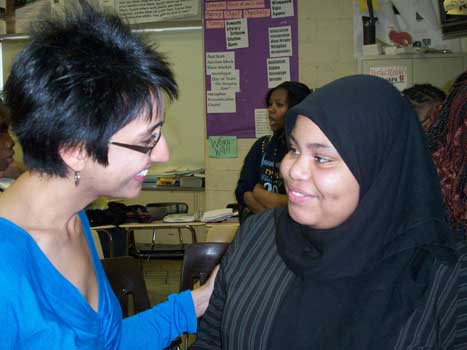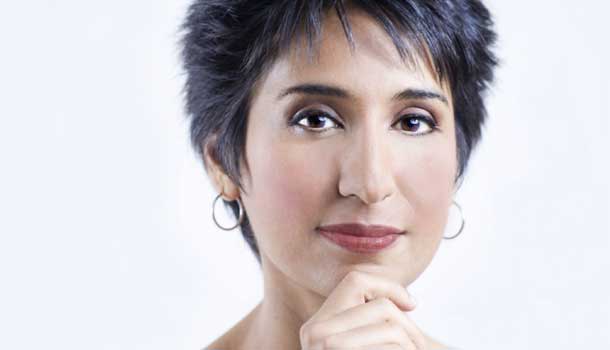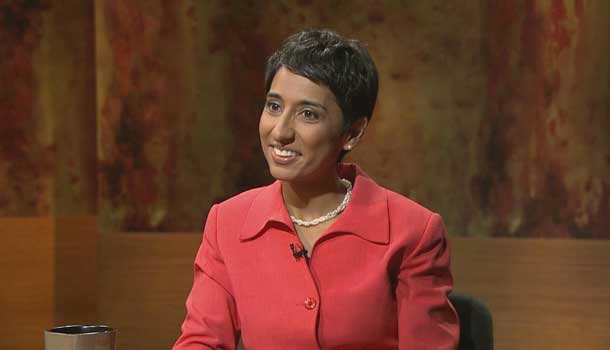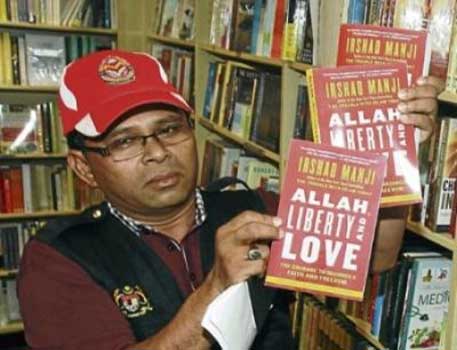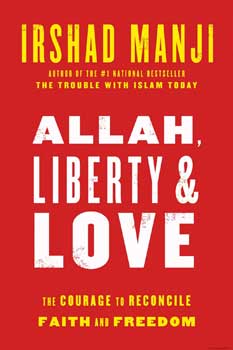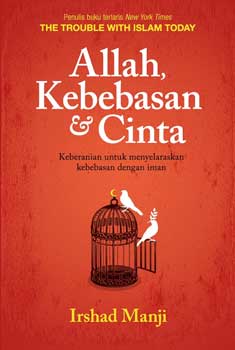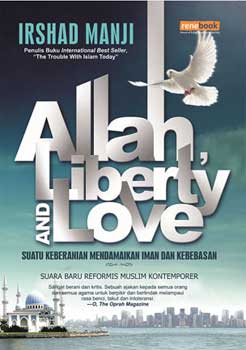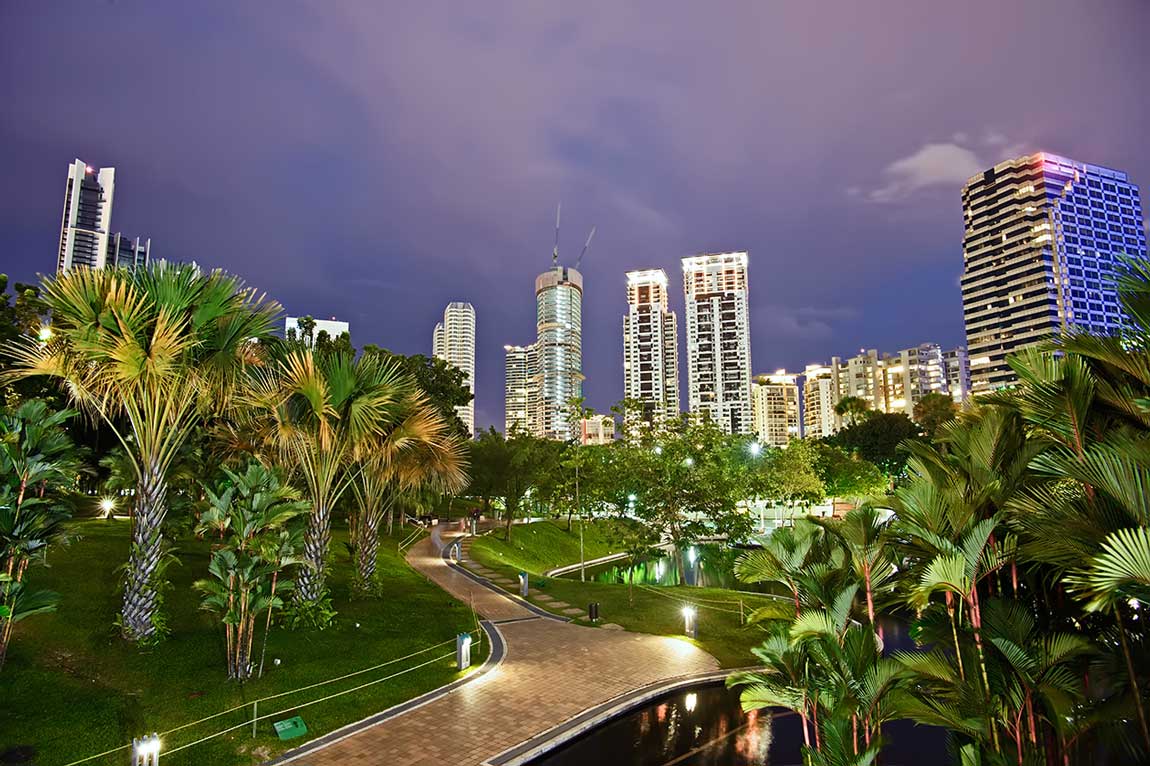
Building Green in Malaysia
December 30, 2014
Back to Basics
January 16, 2015KUALA LUMPUR: I enter one of hundreds of bookshops in Malaysia’s capital, Kuala Lumpur. The air-conditioning hits you in the face like a cool storm. With the dense humidity outside, the cool air is a must in this wall-to-wall bookstore. Volumes are piled one on top of the other, from romance novels to Islamic texts to comic books.
Two rows in from the entrance lie a few books that are rare in Malaysia. If he’s caught with them, the bookseller could face criminal charges. One of the texts is the familiar English-language version of Canadian-Muslim author Irshad Manji’s Allah, Liberty and Love.
“Don’t worry, they won’t do anything,” the owner, Reda Islam, reassures me as he watches me picking up the book and flipping through a few pages. Manji’s text is banned but, says Reda, “they only care about the big bookshops. For us little people, it’s not a big deal.”
Even as Malaysia looks to join the developed world in the next decade, their cultural meanderings, including book banning and religious censorship, have left many in the country questioning whether the government truly wants to be a leader in Southeast Asia socially, as well as economically.
“People are angry over this book because the author is a lesbian, and the government cracked down. But the reality is that we Malaysians are reading more and wanting more. The question is whether the government and the religious leaders will let it happen,” says political science student Yussif Nur Aziz. He believes the future of Malaysia’s political and cultural identity is being waged right now. It is a battle between traditionalism and modernity.
“The government and religious leaders talk about the need to enter the modern world, but they are stuck decades in the past, when censorship of anything they didn’t like was common. It won’t create a new Malaysia with hope,” he added.
Bookshops rightfully have some fears about selling banned volumes. In late May, a 36-year-old Borders bookstore manager, Nik Raina Nik Aziz, was charged in a Malaysian court for selling Manji’s banned book. If convicted, she could be fined up to $1,000 or two years’ imprisonment.
For young activists, banning a book for its message, one they say that portrays Islam as a “tolerant and understanding faith,” is absurd, especially considering Malaysia’s multi-ethnic make-up. But with an election pending – the government must call for a general election by April next year – officials are seeking to shore up the conservative base of the electorate. That means Manji’s book has been banned.
“They are doing this because she is a lesbian woman who is talking about an Islam that the conservatives don’t want. They think she is dangerous and will have young people going crazy. Of course this is not really true, but it is why they ban it,” added Mohammed, another political science student.
Officially, the home ministry banned the book after it was deemed to be offensive to Islam, to contain “elements that could mislead the public,” and to be “detrimental to public order.”
According to Manji’s website, the book “shows all of us how to reconcile faith and freedom in a world seething with repressive dogmas.” Manji has been a longtime proponent of tolerance and understanding within Islam, and describes herself as a “practising Muslim.”
Self-described religious blogger and women’s rights advocate Ousmanah Aziz argues that the banning of the book is about which form of Islam can be discussed in the country. She says that the government wants to be seen as the only promoter of liberal and tolerant Islam in order to win votes.
“It’s about sending a message,” she asserts. “And that message is that the government and its party own the rights to moderate Islam. They talk to the world about how open and tolerant Malaysian Islam is, but at the end of the day, censorship is rampant in the country.”
She pointed to popular cartoonist Zulkiflee Anwar Ulhaqur, or Zunar, who has felt the heavy hand of the state in recent years. “He is an inspiration to young people against a government that is trying to end our freedom to speak out.”
Zunar has been intensely watched by the Malaysian government and subject to draconian forms of censorship for close on ten years. In 2010, he was arrested and detained and all newspapers in the country were ordered to cease publishing his cartoons. Zunar fought back by publishing five volumes of his cartoons in a booklet format. But publishers had also been told not to publish Zunar’s work and the books were seized by the government.
In addition, his office is constantly raided, his books have been confiscated by police, and vendors are told not to sell his work or they could face court charges. His movements are monitored and his phone tapped.
In July 2011, Cartoonists Rights Network International (CRNI) presented its annual Award for Courage in Editorial Cartooning to Zunar. In his acceptance speech in Florida, Zunar explained that the government controls all the newspapers and television and radio broadcasts, leaving no room for dissent. He said: “My aim is to use cartoons as a weapon to fight corruption and the abuse of power by the Malaysian government. Through my cartoons, I highlight very important issues, which have not been reported in the government-controlled media.” He urged everyone to fight injustice.
“My philosophy is clear: in order to make an impact, we must do it to the fullest. My method is to criticise the most powerful leaders in the hardest ways. Why pinch when you can punch?”
But freedom of speech offers more challenges than simple censorship. When protests against a video erupted across the Islamic world on September 11, beginning in Libya and Egypt, Malaysia’s Muslim population followed quickly after, though the Malaysian protests were notable for their moderate, peaceful tone.
The demonstrations were against the film, titled “Innocence of Muslims,” reportedly produced by an Egyptian Coptic Christian living in the United States because it had been perceived as insulting to Islam, and included in their protests were the cartoons mocking Mohammed published by French magazine Charlie Hebdo.
The French cartoons have been seen by many Muslims across the world as provocation. The Malaysian government demanded that Google remove the film from Youtube in an effort to keep the video from being accessed in the country. While Google refused to remove the film from YouTube, it has blocked the video in countries that have protested against it. But Malaysian bloggers and activists say that Muslims must come up with a different response.
“We have to be honest about what really insults us. Is it this film or are we just angry at how Islam is treated by the West? Maybe a mix of both. But we can respond differently,” one blogger said after the demonstrations turned violent.
Even Zunar has weighed in on the controversy. And when Zunar speaks, Malaysians listen. He put it best when he asserted that artists should create a new Malaysian identity that pushes art and Islam in a new, positive direction. Zunar called on Muslims across the world to make works about Mohammed in response to works such as ‘The Innocence of Muslims’. “Films, cartoons and other works of art that mock the Prophet Muhammed will continue to be produced by the Westerners who are neither aware of nor subject to the rules of Islam,” he wrote in an open letter published by Free Malaysia Today.
That, for many Malaysians, is the right response and one that combines Islam, modernity and openness.




